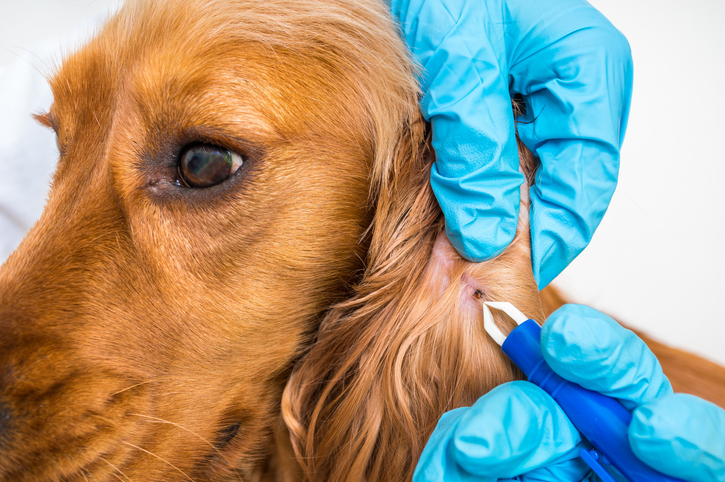Welcome to the second part of our preventive pet care series! In these posts, we’re going over all the tips and tricks you need in order to get proactive about looking after your pet. Today, it’s all about cats and their monthly needs. Stay tuned for part 3. You can click here to read part 1 (caring for rabbits).
Even if they’re a more laidback pet to raise compared to dogs or rabbits, cats require just as much affection and attention when it comes to caring for them as pets. Because of their ancient instincts to hide pain, sickness, and discomfort, it can be difficult to know when something’s wrong with your cat. That’s one of the reasons why proactive care for them is so crucial—it allows you to preemptively attend to your cat’s needs and ensure they don’t end up dealing with a more serious health issue later on.
So what kinds of regular monthly routines should you be in the habit of doing? These below care tips cover those tasks that you can do not only monthly, but also weekly and even daily.
Checks for Lumps and Bumps
Since your cat’s skin is fully covered in fur, it can be easy to miss anything out of the ordinary without looking for it. That’s why we recommend you take some time at least once a month to check your cat’s skin for any lumps, bumps, scabs, or anything else unusual.
Gently use your hands to check and see if you can feel anything on your cat that seems out of the ordinary. If your cat will tolerate it, try to part the fur and get a better look at it. Pay attention to your cat’s reaction as well—make sure not to cause any added pain or discomfort.
If the mark is simply a small scratch that’s in the process of healing, it’s probably nothing to be concerned about. However, if you find anything resembling a cyst or abscess, or perhaps an unidentified bug bite, it’s best to have your cat seen by a veterinarian as soon as you can. They’ll be able to positively identify the issue and, if necessary, help you form a treatment plan.
Flea and Worm Treatments
If you choose to let your cat outdoors, then flea treatments are absolutely essential. Fleas can be found anywhere in BC’s Lower Mainland and Burnaby for almost the entire year, and will happily infest any cat they come across that hasn’t been treated with a flea solution. However, even fully indoor cats have a chance to contract fleas, either from other animals or simply through bad luck.
Thankfully, most flea treatments only need to be administered once a month at the most. Your veterinarian will prescribe a flea treatment that’s suitable for your cat and your environment.
Worms are a similar concern—between roundworms, hookworms, tapeworms, and the other nasty parasites that can infest cats, it’s best to eliminate the possibility altogether. Fortunately, your vet can test your cat for internal parasites once to twice a year. If any are detected on the test, your veterinarian will guide you through the different treatment options.
Teeth Brushing
Admittedly, it’s not always easy to brush a cat’s teeth, especially if you haven’t been doing it since they were a kitten. But the evidence is very clear: cats with clean mouths live longer.
Regular brushing is a great way to protect your cat from potentially serious issues such as periodontal disease. The best practice is to try and brush as close to daily as possible, and then have a full, professional cleaning done on your cat’s teeth at least once a year.
Nutrition and Water
While obviously not a monthly routine per se, you should be giving consistent thought to your cat’s food and water daily intake, as well as their overall nutrition. While there’s no single best cat food for every cat out there, you should be looking for nutritious food that meets AAFCO standards. Foods that are AAFCO approved are guaranteed to be nutritionally complete and balanced for your pet. You’ll also want to make sure your cat has consistent access to a steady supply of cool, clean water to ensure they stay hydrated.
There are some aspects of feeding a cat that come down to preference, such as wet food versus dry or scheduled feeding versus free eating. Your veterinarian can help give you guidance if you’re not sure.
In either case, be sure to pay attention to your cat’s behaviours—are they eating and drinking enough? Have they suddenly seemed to lose interest in their food? Keeping these questions in the front of your mind will help ensure your cat stays healthy.
Brushing (For Certain Breeds)
For certain breeds of cats, brushing is an essential routine to help keep their fur and skin healthy. This is especially true for long-haired breeds, although most cats will, at the very least, enjoy being brushed. Brushing is also an ideal time to check for any irregularities on the skin, which can help you get your cat the care they need before a small issue becomes a big one.
Lots of Time for Play and Exercise
Last but not least, make sure you’re taking plenty of time each month to foster a fun, active environment for your cat. While we strongly recommend keeping your cat indoors, it’s true that it can be difficult to keep them stimulated and active when at home all the time.
Consider adding obstacles and play spaces around the house for your cat, switch out the toys frequently, and spend lots of time playing and simply hanging out with your furry friend. Making this a priority will help your cat feel more calm and happy, which may have a direct link to their physical health as well!
As you can see, a little routine can go a long way when it comes to caring for your beloved cat. Prevention is always preferable to treatment, which is why our veterinarians are dedicated to creating resources like this one. With the right knowledge, you can do a lot to proactively care for your cat’s health monthly, thereby fulfilling their weekly and daily needs as well.
Creative Commons Attribution: Permission is granted to repost this article in its entirety with credit to Hastings Veterinary Hospital and a clickable link back to this page.






